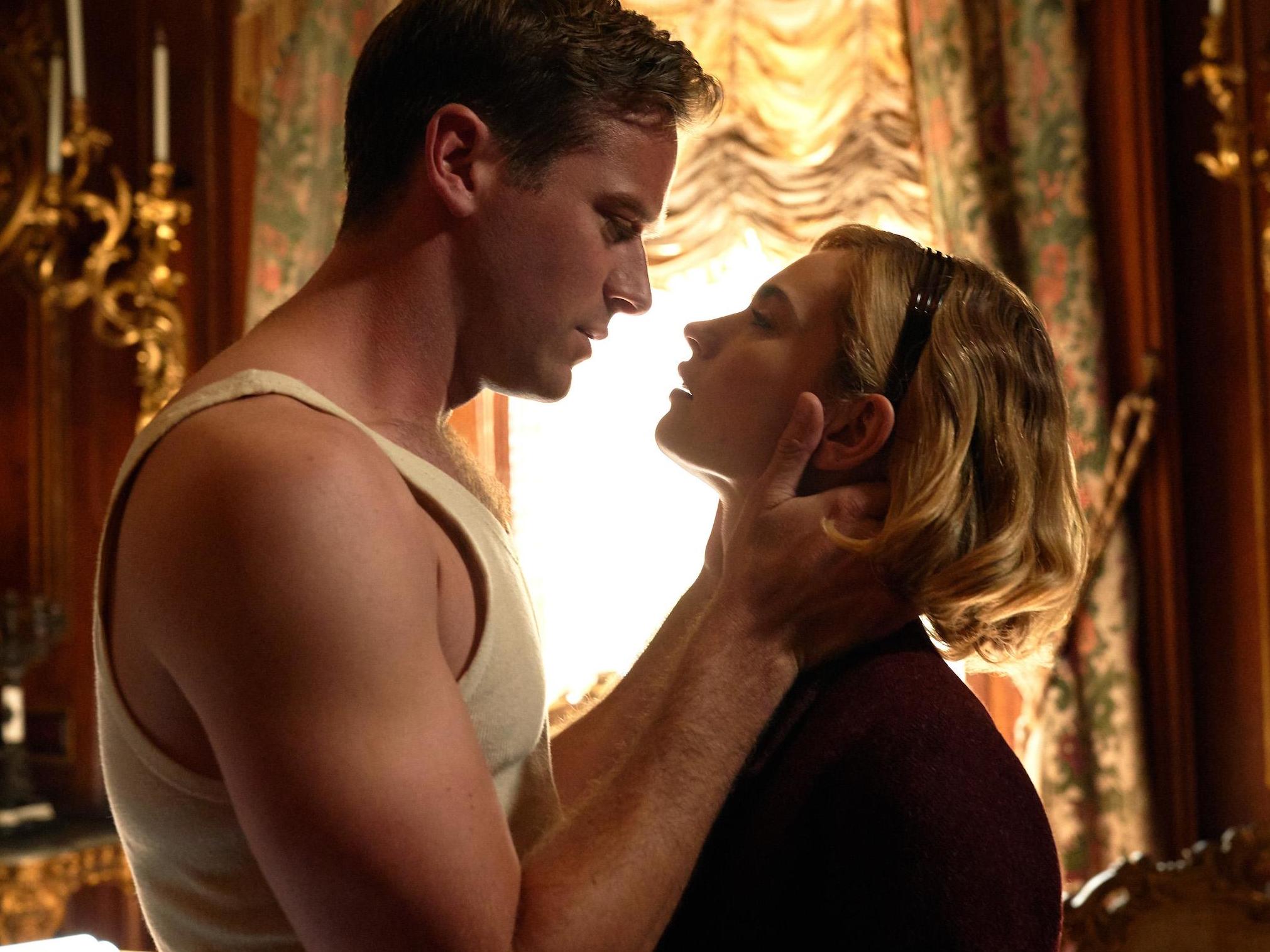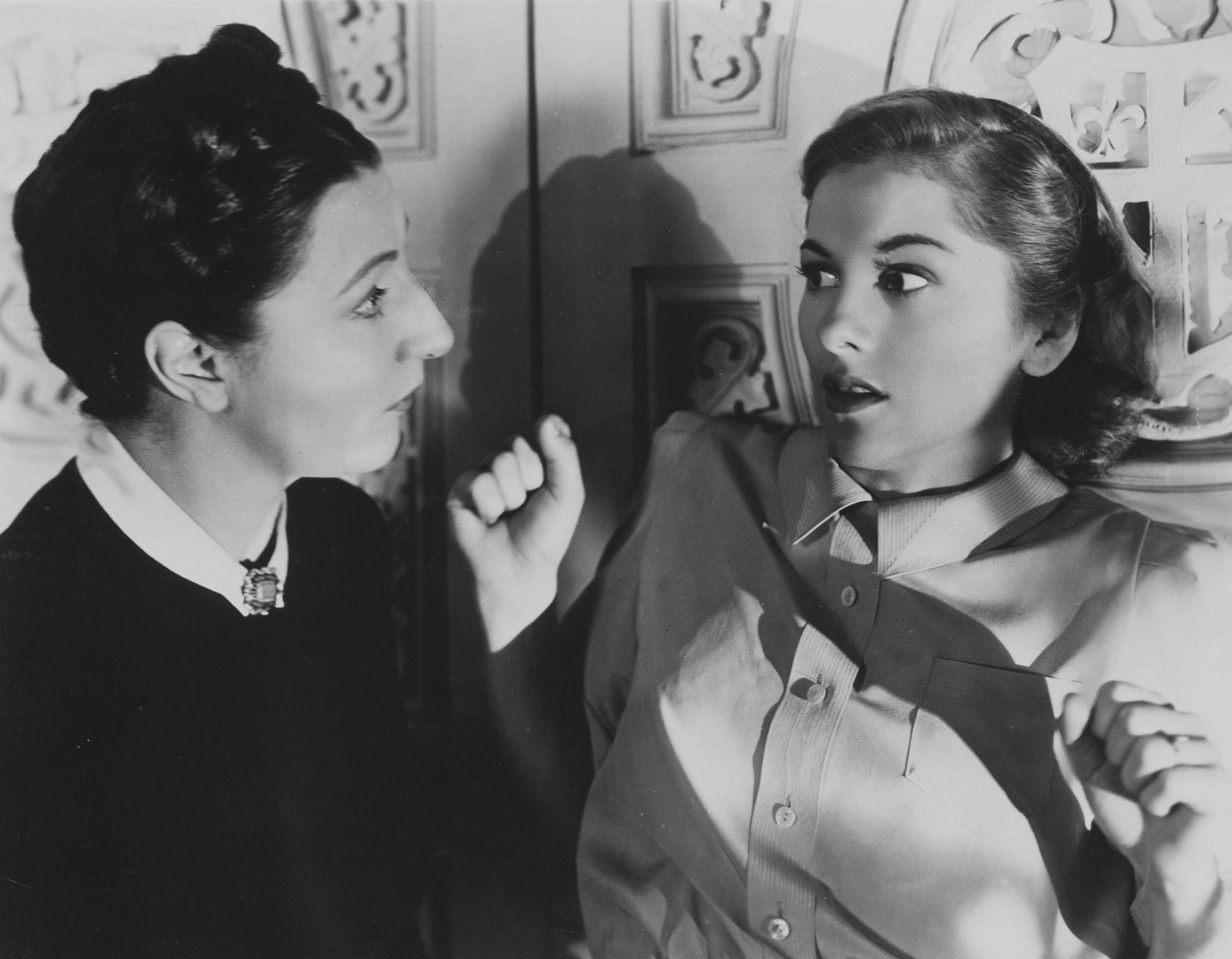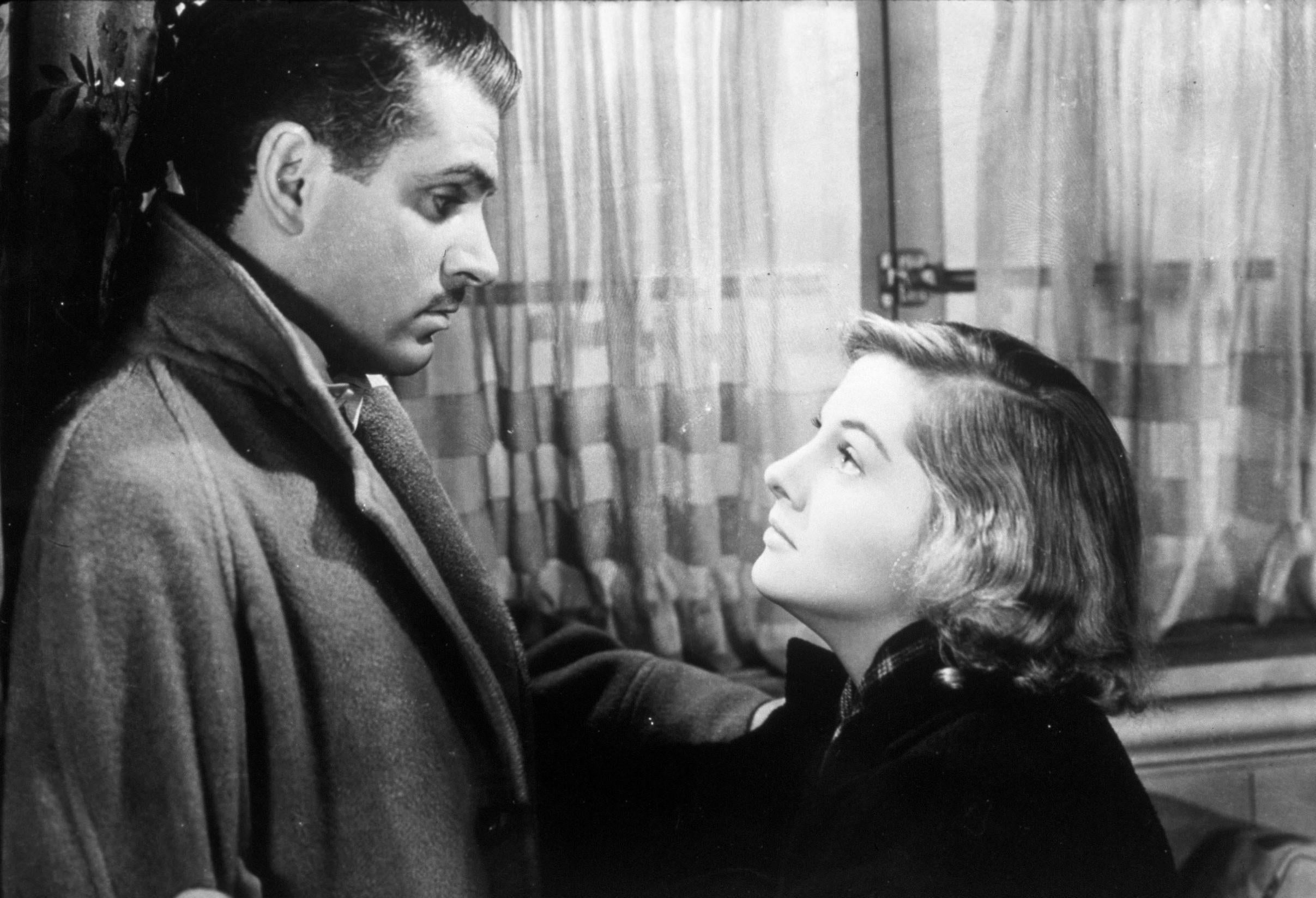Can Ben Wheatley’s Rebecca match the delirious intensity of Hitchcock’s classic?
The new adaptation of Daphne du Maurier’s novel, due out on Netflix this autumn, stars Armie Hammer and Lily James but it’s unlikely to uncover fresh insights, says Geoffrey Macnab

Whenever there are new screen adaptations of familiar stories that have been filmed successfully several times before, questions are always raised as to why they are being made. Daphne du Maurier’s 1938 novel Rebecca was the source for Alfred Hitchcock’s 1940 Oscar winner starring Joan Fontaine and Laurence Olivier. This was Hitchcock’s first movie in the US and was a runaway success. Since then, Rebecca has also been adapted for TV several times.
In recent weeks, the director and stars of the latest version of Rebecca, which is due to launch on Netflix in October, have been trying hard to put a clear distance between their film and its predecessors. They’ve insisted they are not slavishly following in Hitchcock’s footsteps. The usual arguments have been mustered that Du Maurier’s novel needed a modern-day “makeover” as if it had become as draughty and cob-webbed as Manderley itself, the imposing English country house in which much of the story is set.
The new film is scripted by Jane Goldman, whose credits include Kingsman, Kick-Ass, X-Men: First Class and The Woman in Black. It’s produced by Working Title, the company behind Bridget Jones, and is directed by Ben Wheatley, best known for his horror films and thrillers, including 2012’s Sightseers and 2015’s High-Rise.
Kristin Scott Thomas, who plays the terrifying housekeeper Mrs Danvers, recently told the Daily Mail: “We’re doing an adaptation for today, with the idea that women aren’t necessarily the weaker sex.” While Armie Hammer told New York Magazine: “We’re going to come up with something really interesting and different than the Laurence Olivier version.”
Wheatley has argued that Rebecca is “such a great story that a modern audience would be open to a retelling of it”.

In her public utterances about the film, Lily James, meanwhile, has made it seem as if the new adaptation is a dark and disturbing contemporary psychodrama rather than a melodramatic fable in the Cinderella vein.
“I found it very difficult to let go of the character. I had panic attacks for weeks after,” James admitted to the audience at her Bafta masterclass at the Macao film festival last December shortly after completing work on the film. More recently, James told veteran showbusiness reporter Baz Bamigboye that she had steeped herself in Sylvia Plath’s harrowing poetry to “get under the skin” of her character.
The irony about these remarks is that the madness, sexual jealousy, violence, illness and horror are all in the Hitchcock movie too. It’s a moot point as to whether Wheatley will be able to uncover fresh secrets and insights that Hitchcock and his collaborators, including legendary producer David O Selznick, somehow missed.
Hitchcock’s Rebecca, celebrating its 80th anniversary this year, is at once very contemporary in its themes and a film that belongs to a different, bygone age. It’s a comedy of manners as well as a disturbing, dream-like drama about a young woman’s loss of sexual innocence. It is set in a world in which snobbery and exploitation are rife.
One reason that Rebecca endures is because of Du Maurier’s ingenious storytelling style. She adds to the mystery by withholding key information about the film’s female protagonist. We never discover her name. She is a young, naive woman from a modest social background (“a shy, uneasy colt” as she styles herself), working as a paid companion for the grotesque, social-climbing Mrs Van Hopper.
In her novel, Du Maurier reveals that the young woman’s beloved father died of pneumonia and that the woman has a “very lovely and unusual name”, but we don’t learn who the father was or when he fell ill. Nor do we hear his name or that of his daughter. Hitchcock’s film is even more pared down. It takes out all the references to her love of the countryside and to how she and her husband spend their time reading reports of old cricket matches (“Middlesex batting on a dry wicket at the Oval and piling up interminable dreary runs”). Hitchcock was making his film in Hollywood and tailored its vision of Britain to the tastes of American audiences. The sense of cultural dislocation adds to the eeriness.
As Hitchcock’s biographer Donald Spoto points out, producer Selznick was as particular about casting Rebecca as he had been about choosing his Scarlett O’Hara in Gone with the Wind. “Too coy and simpering to a degree that is intolerable,” Hitchcock’s wife Alma and his long-time script collaborator Joan Harrison complained about Joan Fontaine when she was testing for the lead role of the young ingenue. Thankfully, Fontaine got the part, beating out her sister Olivia de Havilland and the then 16-year-old Anne Baxter who would star in All About Eve a few years later. Fontaine was perfect precisely because she was so coy and simpering. “I could see her potential for restrained acting and I felt she could play the character in a quiet, shy manner,” Hitchcock later told fellow director Francois Truffaut.
At times, Fontaine’s self-effacing behaviour can be excruciating to watch.
“You mean you want a secretary?” Fontaine pipes up in typically diffident style when the dashing Maxim de Winter (Olivier) invites her to live in his country house, Manderley. “I am asking you to marry me, you little fool,” he clarifies. Once she arrives there, everyone complains that she behaves “more like an upstairs maid than the mistress of the house”. She is “a placid little thing” who doesn’t ride, hunt or fish, the main pastimes of her shire neighbours. “I can see by the way you dress you don’t give a hoot about the way you look,” her new sister-in-law tells her. She is compared unfavourably to the first Mrs de Winter, the late Rebecca, who, she is continually reminded by the stern-faced housekeeper Mrs Danvers, was the quintessence of style and glamour. As these comparisons are made, she becomes more and more self-conscious. She can’t bear “people looking me up and down as if I was a prize cow”.
Rebecca was the first film in which the director treated his female lead in the sadistic and manipulative way that became commonplace with stars like Kim Novak and Tippi Hedren later in his career. Spoto writes about the “moral tyranny” he exercised over her. He would tell her that her co-star Olivier didn’t want her in the film and would stop the cast socialising together. He deliberately created an atmosphere of simmering tension and hostility on set. If Fontaine felt awkward and out of place, it was all the better.
“He seemed to relish the cast not liking one another, actor for actor,” Fontaine later remembered. “Now, of course, this helped my performance, since I was supposed to be terrified of everyone.”

Fontaine described Hitchcock as a “Svengali” determined to have complete control over her. It’s a revealing description. Du Maurier’s grandfather, George du Maurier, was the Victorian-era writer who created the character of Svengali in his 1894 novel, Trilby. Svengali is the sinister figure who hypnotises an ordinary woman, transforming her into a brilliant, diva-like singer. This was precisely the trick that Hitchcock tried to perform with many of his female leads. It is similar to what his producer Selznick was doing too, whether with Vivien Leigh in Gone with the Wind or with the Oklahoma-born Phylis Lee Isley, whom he renamed Jennifer Jones, turned into a star and eventually married. The warped relationship in Rebecca between the older, sophisticated Maxim and the ingenue played by Fontaine mirrored that between the filmmakers and their various pet discoveries.
James’s remarks about suffering from anxiety for weeks after finishing work on the new version of Rebecca suggest that her experiences have been almost as traumatic as those Fontaine endured 80 years ago.
The early part of Rebecca is set on the French Riviera, or, at least, a Hollywood recreation of it. Hitchcock would come back there for real 15 years later for To Catch a Thief (1955), starring Grace Kelly and Cary Grant. In both films, he shows the ennui and corruption that go alongside the glamour and gambling. Characters drive too fast or have reckless affairs. One grotesque shot that Du Maurier also describes in the novel – Mrs Van Hopper stubbing out a cigarette in her cold cream – sums up the jaded decadence of the gilded set in Monte Carlo or Cannes. That aspect of riviera high life hasn’t changed in the slightest since Hitchcock’s Rebecca.
Another side of Hitchcock’s Rebecca still relevant to filmmakers today is the use of psychogeography. The environment, and in particular the country house, affects the emotions and behaviour of the characters. Hitchcock described the house as one of the main characters in his story. Manderley has a malevolent force. The terror Fontaine’s character feels isn’t just for Mrs Danvers but for her home too. She associates every part of it with the dead Mrs de Winter. As Hitchcock later explained, “the mansion is so far away from anything that you don’t even know what town it is near ... I felt instinctively that the fear would be greater if the house was so isolated that the people in it would have no one to turn to.”
Countless horror films have borrowed from Rebecca. This wasn’t just a case of stairs creaking and windows blowing open. The terror was stoked in a far more subtle way, in the increasing paranoia that the new Mrs de Winter feels.

It’s very hard to see how Wheatley’s film can match the delirious intensity of Hitchcock’s Rebecca. Everything in Hitchcock’s, film from Franz Waxman’s brooding music to the prowling camerawork and Fontaine’s famous, tremulous opening voiceover (“last night I dreamt I went to Manderley”) is jarring and unsettling. This was a relatively faithful adaptation. Du Maurier’s “celebrated novel” is acknowledged prominently in the opening credits and Hitchcock stuck closely to its contours. However, the director smuggled in plenty of provocative elements. “There must be no suggestion whatever of a perverted relationship between Mrs Danvers and Rebecca,” the US censors warned the filmmakers but Judith Anderson’s performance as Danvers left audiences in no doubt that the housekeeper has an erotic obsession with her former mistress. Danvers can’t help pawing away lovingly at Rebecca’s old nightgowns and hairbrushes.
“Though no one mentioned the underlying lesbianism of the Rebecca-Danvers relationship, Hitchcock sensed it,” Leonard Leff writes in his book, Hitchcock and Selznick.
Danvers’s extreme hostility towards Fontaine’s character seems to mask an attraction to her as well.
Eighty years on, Wheatley’s film can be expected to deal far more frankly with the lesbian subtext than Hitchcock was allowed to in 1940. As he has shown in his JG Ballard adaptation High-Rise and his horror-comedy Sightseers, Wheatley is a naturally subversive filmmaker with a sense of humour almost as ghoulish as that of Hitchcock himself. His film has an excellent cast. Hammer will be expected to play Maxim de Winter with the same saturnine charm and hint of menace that Olivier brought to the 1940 version. James seems very well chosen to take on the Fontaine role and Scott Thomas is bound to enjoy herself as Mrs Danvers, the housekeeper from hell. However, you just can’t see what fresh perspectives the film will offer on material already pored over so exhaustively by other filmmakers. Just as Fontaine’s character struggles to exorcise the memory of Rebecca, Wheatley is bound to have a considerable fight of his own to persuade audiences not to look at his film through the prism of Hitchcock.
The new adaptation of ‘Rebecca’ will be released on 21 October on Netflix
Join our commenting forum
Join thought-provoking conversations, follow other Independent readers and see their replies
Comments